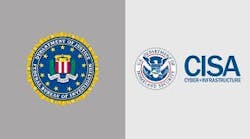WASHINGTON -- Only four of an estimated 60 biological and nuclear agents that terrorists could use as weapons are classified now as highest-level threats, federal officials said Thursday.
To designate substances as health threats, the government must determine whether there are enough vaccines or antidotes in the event of an outbreak, or whether new countermeasures should be developed.
The four health hazards already on the Homeland Security Department's material threat determination list are anthrax, smallpox, botulinum toxin and the effects of radiological and nuclear devices.
"We've only done four. And I'm told there are about 60 possibilities for material threat assessments. Is that correct?" Rep. Norm Dicks asked at a hearing of a House Homeland Security subcommittee.
Dr. John Vitko, director of the department's biological countermeasures office, said Homeland Security has focused first on the high-priority concerns.
The process of naming a hazard as a high-level threat is complex and lengthy, he added.
"This is worrisome to us," said Dicks, D-Wash. "Somehow, we need to move the process a little more rapidly."
The director of the National Institutes of Infectious Diseases told lawmakers that the lag in classifying the diseases "is a concern."
"I'm aware of how difficult it is ... in getting the analysis," said Dr. Tony Fauci, whose office is part of the National Institutes of Health.
"I agree there is a concern and it needs to be moved faster," Fauci said. He said the Health and Human Services Department "is clearly addressing that."
The Homeland Security Department almost has finished assessing whether three more threats - plague, tularemia and chemical nerve agents - should go on the list, Vitko said.
The department will begin reviewing viral hemorrhagic fevers for inclusion next month, he said.
In an interview with The Associated Press, Vitko said there is no specific indication of threats to the U.S. by biological agents not already on the list.
In prioritizing the agents, the department looked at "how much they infect people, how easy they are to get, what their effects are," Vitko said.
"I don't want to say there's a real scare," Vitko said. "The whole issue with the biological question is, there are lots of agents that are possible and within the access of terrorists. ... These are the ones of major concern."
Also at the hearing, the director of the Centers for Disease Control and Prevention said it was unclear whether there will be enough flu vaccine for the public this winter. She and others made similar warnings last spring.
"I'm not counting on it," Dr. Julie Gerberding said.
Last October, the flu-shot supply was abruptly cut in half when British regulators shut down a Chiron Corp. factory because of contamination concerns. This year, federal health officials plan to urge the elderly and others most at risk from the flu to be the first vaccinated.

